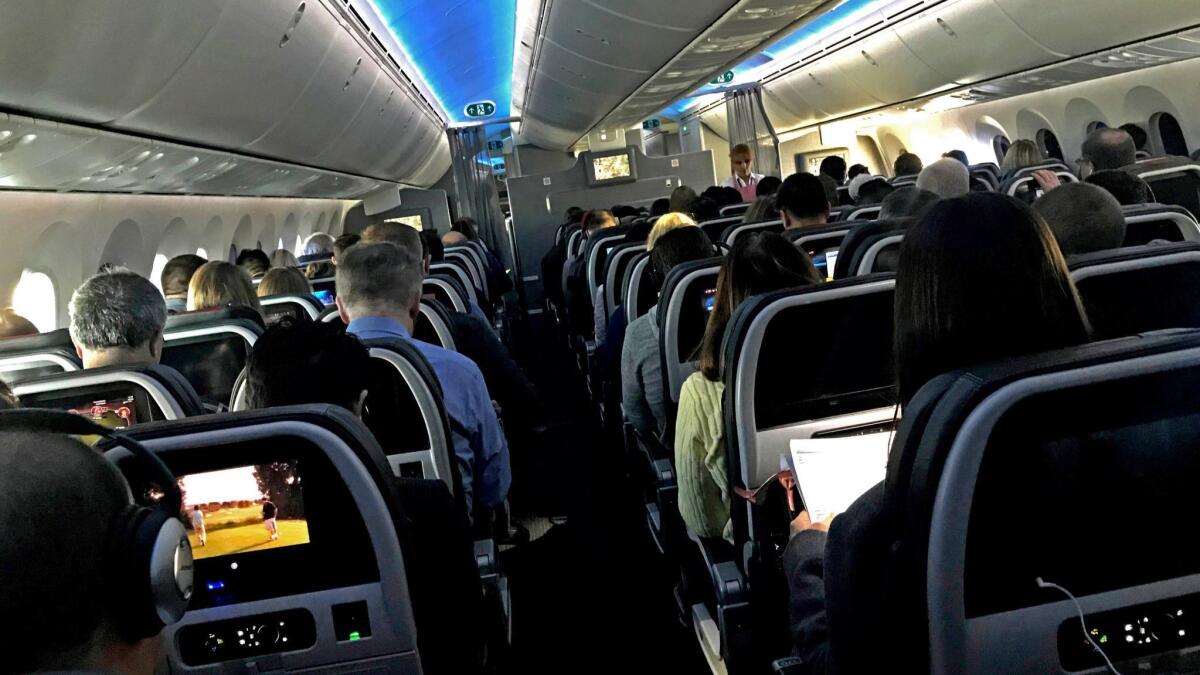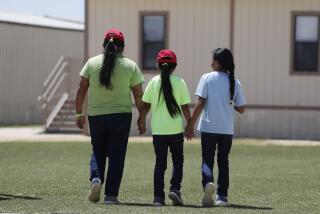Civil rights groups and lawmakers express concerns about a TSA program that tracks domestic travelers

- Share via
Civil rights groups and lawmakers are demanding that the Transportation Security Administration explain a program that tasks federal air marshals at airports and on domestic flights with monitoring Americans who have committed no crimes.
The program, called Quiet Skies, was first reported by the Boston Globe and is described as an effort by air marshals to prevent terrorism by conducting surveillance on U.S. citizens who get the attention of the marshals by fidgeting, sweating, trembling, staring or exhibiting other suspicious behavior.
The American Civil Liberties Union demanded Monday that the TSA provide more information on the program and the Council on American-Islamic Relations called on the TSA to drop the program, saying that it may “single out law-abiding Muslim travelers for official harassment.”
U.S. Rep. Bennie G. Thompson (D-Miss.), ranking member of the Committee on Homeland Security, and Rep. Bonnie Watson Coleman (D-N.J.), ranking member of the Subcommittee on Transportation and Protective Security, wrote to the TSA on Tuesday, asking the agency to explain the legal justification for the program.
“Does TSA believe it has authority to collect intelligence, including on U.S. citizens, and if so, from where does it derive such authority?” according to the letter sent Tuesday to TSA administrator David Pekoske.
The ACLU said it plans this week to file a Freedom of Information Act request with the TSA to learn more about the program.
“Travelers deserve to know how this surveillance is being implemented, what its consequences are for Americans, and for how long the TSA is retaining the information it gathers,” said Hugh Handeyside, a senior staff attorney with the ACLU, in a statement. “What we’ve seen so far is troubling, which is why we’re demanding that the TSA hand over records it’s been hiding from the public.”
In a statement, the TSA said the program doesn’t take into account race or religion and is not intended to track ordinary Americans.
“The program analyzes information on a passenger’s travel patterns, and through a system of checks and balances, to include robust oversight, effectively adds an additional line of defense to aviation security,” the TSA said, adding that the program “is a practical method of keeping another act of terrorism from occurring at 30,000 feet.”
TSA spokesman Michael Bilello said several activities may draw the attention of the air marshals under the program, including traveling to areas of the world where terrorism is prevalent. But he added that the air marshals will stop tracking a traveler after awhile if that person no longer exhibits suspicious behavior.
But the Boston Globe reported that air marshals, through interviews or internal communications shared with the newspaper, say they are assigned to shadow travelers who appear to pose no threat, including a fellow federal law enforcement officer and a Southwest Airlines flight attendant.
To read more about the travel and tourism industries, follow @hugomartin on Twitter.
UPDATES:
12:25 p.m.: This story was updated to include new information on the surveillance program provided by the TSA.
This article was originally published at 11 a.m.
More to Read
Inside the business of entertainment
The Wide Shot brings you news, analysis and insights on everything from streaming wars to production — and what it all means for the future.
You may occasionally receive promotional content from the Los Angeles Times.










